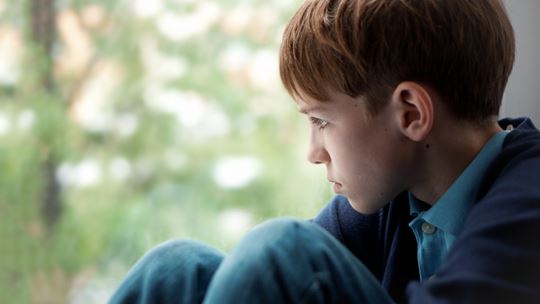Self Injury Awareness Day (also known as Self Harm Awareness Day) is a global campaign to encourage people to open up about their own experiences of self-harm and self-injury.
As a therapeutic fostering agency, sadly, we work with many vulnerable children and young people who may be self-harming or have done so in the past.
ISP Co-ordinating Therapist, Dave Woodward, gives us an insight into self-harm to support families who may be worried about self-harm with their own children.

What is self-harm?
Self-harm can take many forms but is ultimately when an individual deliberately hurts or injures themselves. Sadly, Childline reported that they delivered over 22,000 counselling sessions about self-harm in 2016/17, making it one of the most common reasons for children and young people to reach out for support.
Ways of self-harming can include cutting, pinching, picking at skin, hitting yourself, overdosing, taking poisonous substances or even extreme body art. It may be that someone uses just one form of self-harm, or that they use different forms at different times.
What causes a child or teenager to start self-harming?
The reasons why children and young people self-harm will very much depend on the individual, but many say they use it as a distraction, normally from painful memories or intrusive thoughts. However, there are many that won’t know exactly why they self-harm but use it as a way to bring relief or to communicate distress.
There could be certain triggers, such as bullying or pressures at school, or there could be more complex reasons including depression and trauma. It also brings a sense of control to those who may be struggling with immense change in their life, or they could use it as punishment for something they feel guilty about.
There are many reasons, so it is important to not make assumptions and keep an open mind.
How can a parent or carer spot the signs of self-harming?
This will greatly depend on the child or young person. Some may be very secretive, while others may be happy to talk about their self-harm. There are some signs to look out for that could indicate your child is self-harming:
- Unexplained injuries
- Covering arms and legs and keeping them hidden
- Reluctance to take part in sports such as swimming or PE
- Mood changes
- Being withdrawn and non-communicative
- Increased amounts of time online
- Finding self-harm paraphernalia in their bedroom (blades, sharp objects etc)
What should parents do if they think a child is self-harming?
Most importantly, don’t be critical and don’t panic. If they are self-harming, it does not necessarily mean they will do this forever.
Be compassionate and accepting. Ask them questions about their self-harm, but be patient if they are not ready to talk about it. Show you understand and don’t interrupt if they are talking openly.
You may need to provide first aid to injuries, and if these are serious seek medical assistance.
Speak to other professionals who may be involved with your child’s journey, such as school and clubs.
There are various techniques that can be used to help those who self-harm, such as working on harm minimisation but seek professional help from a GP or counsellor first to find out what will work best for your child.
Other useful support and advice organisations include:
ISP Foster Carers should speak to their Supervising Social Worker or any of the central team if they are concerned a young person in their care may be self-harming. The child’s local authority Social Worker should also be informed.
What’s the journey to recovery?
Some children and young people will recover with just the support of their families, while others may need some professional support. When cases are more severe and complex, the road to recovery may take longer.
Each case and child is different, and it may be that there are other factors, such as depression, which will affect recovery time. There can be an addictive element to self-harming and it can become very habitual to some people.
It’s estimated that fostering services need to recruit a further 5,900 foster families in the next 12 months in the UK. If you’d like to learn more about becoming a foster parent, then please get in touch with our friendly team on 0800 0857 989 – we’d love to hear from you.





